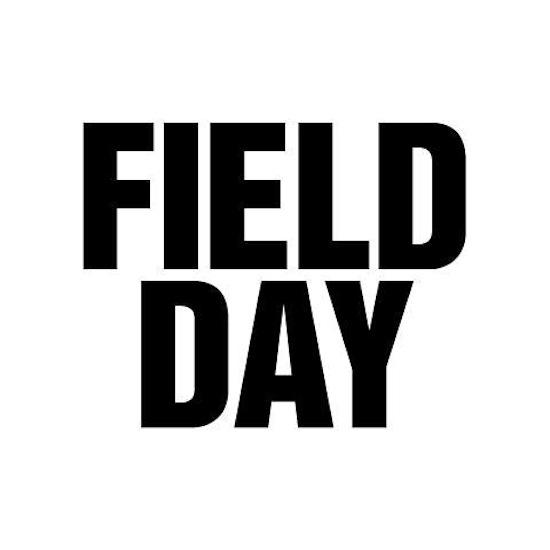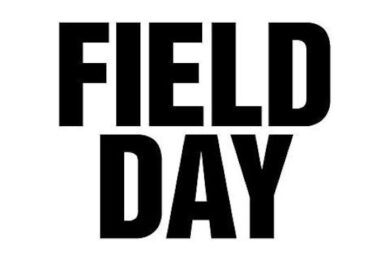Field Day 2015 is nearly upon us, so the Quietus thought it a worthy cause to gather up all our interviews, Baker’s Dozens, mixes and the like and present them in one succinct package before the festival, held as always in Victoria Park, London, this year on June 6 and 7. Watch this space as we approach the festival, as we have a few more features in the lead-up, and purchase tickets if you haven’t yet here.
Andrew Weatherall b2b with Daniel Avery – Saturday, June 6

"Weatherall, the artist formerly known as Lord Sabre who now goes by the deserved title of “The Chairman”, has reached 50, and while he may have called time on the hedonism, creatively he is spreading his wings. The publisher Faber and Faber (specifically, Faber’s creative director Lee Brackstone) has brought this pair of kindred spirits together for a project where Weatherall, currently Faber’s Artist in Residence (a nebulous position that he is evidently proud of but unable to pin down precisely what it entails), has provided a soundtrack for Smith’s novel, Unreal City, a work Smith describes as ‘a series of vignettes about London … a dysfunctional love letter to the city,’ and Weatherall nails thus: ‘It’s an ‘It’s not you, it’s me’ letter to [London].’ The narrator of the novel is a version of Smith; a creative fallen on hard times, drifting around East London watching the hipsters taking over his old stomping grounds, reminiscing of decadent nights in old Soho and shabby canalside warehouses in Hackney." Joe Clay
Click here to read the piece in full
Awesome Tapes From Africa – Saturday, June 6

Brian Shimkovitz on the revenue and ethics of his label: "The musicians on the label are all making money and I wish I could help distribute music of even more artists. The blog itself doesn’t generate money as there are no ads or donations. DJing is work you often get paid for and any given DJ should be able to select any kind of music without having to defend him/herself, I feel. There are power relationships at play with my blog, I am fully aware of that. I have lived in Ghana and I have seen the situation over there and other regions. If I wanted to make money, however, I’d be in a different business. The overall benefit of making older music that is otherwise not distributed available on the web outweighs the money that might be generated through paid spins/downloads. My inability to track down every single artist and reissue their records is my only regret. The label is self-sustaining, having no trust fund or other special hidden money behind it – it stays afloat entirely through sales. To make the blog like that would be the dream scenario, but I’m not there yet. I also think it’s important to note you will find many country-specific sites giving away African music illegally so I also don’t feel like ATFA is something altogether unique in that regard."
Click here to read the piece in full
Baxter Dury – Sunday, June 7
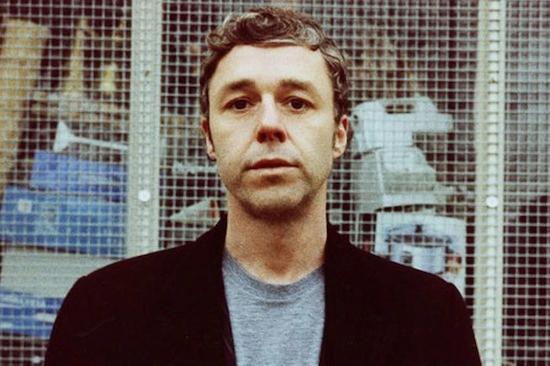
"Dury is a big star in France right now, and as we’ll learn, a much bigger one than Ian Dury ever was across La Manche. Dury Jr can’t speak a word of the language, but he’s signed to PIAS and he’s been enveloped into the bleu breast of le coq gaulois nevertheless. The singer was just recently on the cover of Les Inrockuptibles – the country’s premier music and culture magazine – and he plays L’Olympia in a few months, a venue that has a rich history of legends stretching back to Piaf and Gainsbourg, and interlopers like The Beatles and Led Zeppelin. It still carries prestige perhaps more than any other venue in the French capital, and usually denotes a class act is passing through its hallowed doors." Jeremy Allen
Click here to read the piece in full
Bok Bok – Saturday, June 6

"’Most of the albums we’ve talked about have been all about world creation, haven’t they? An internal logic which makes all the tracks relate to each other.’ It’s a chilly early April afternoon, and Night Slugs co-founder Alex Sushon, aka Bok Bok, is sitting in the garden of Camberwell’s South London Gallery discussing thirteen of his favourite records. ‘There’s a thread running through all of these, where there’s no disparateness about the album, it’s all one self contained project. There’s got to be a really good reason why twelve tracks that interrelate are on the same record. It’s massively important for Slugs as well. We’re always thinking about how these things fit together, what shape they should take.’" Rory Gibb
Click here to read the piece in full
Caribou – Saturday, June 6
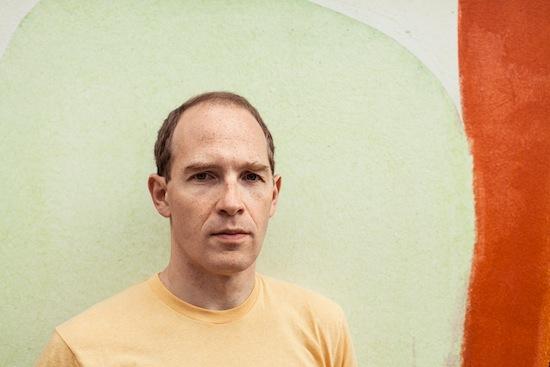
Dan Snaith on his 13 favourite records: "A lot of these albums are so evocative of a particular time in my life when I really loved that music and invested a lot of time listening to it. These are the ones that I listened to over and over again. I don’t do that so much these days, maybe because there’s so much music around. I’m not sure. The experience isn’t the same for some reason. Some of them have been with me for a long time, which makes sense because part of what I love about them is that they are embedded in my life. In some ways this list represents the music that I grew up with. These are the albums that have been the bedrock for me."
Click here to read the piece in full
Clarence Clarity – Saturday, June 6

Clarence Clarity: "I just had a mantra of "clarity"; I had the word stuck on the wall in front me where I was working, just as a sort of meditation device. I didn’t want to stray from what I’d planned and seeing that word in front of me was basically a reminder to stick to it. When it actually came to properly deciding a name, I’d just been telling everyone I’d been doing this "clarity" project. It just felt right. But I didn’t want to just go as Clarity, I wanted to modify it. I wouldn’t say turn it into a character, but make it obvious at least that it’s just me, and Clarity by itself would have been too ambiguous. I don’t really feel it’s a character or an alter ego or anything, but I step into that name whenever it’s applicable, like when I step on stage or something. It’s still very personal."
Click here to read the piece in full
Clark – Saturday, June 6
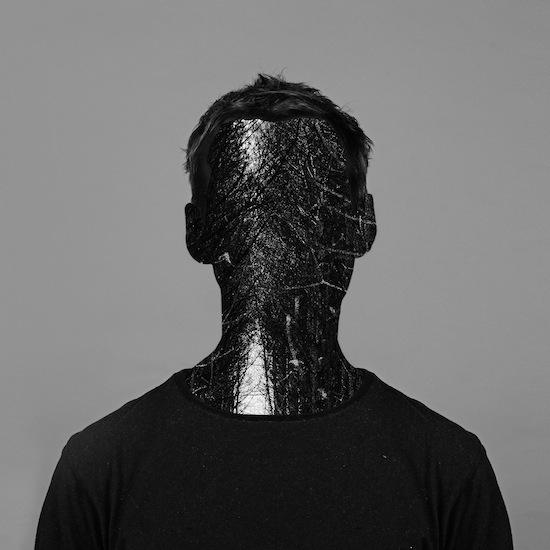
"Clark, Chris Clark’s seventh album, is possessed of a certain frosty clarity, one which makes it a perfect record for winter. The reason for such seasonal suitability may be that Clark decamped from his home in Berlin, where he normally lopes out of bed and into a studio next to his bedroom, to an isolated barn in the English countryside to record. ‘It’s funny because, along with Warp, I thought it would take two months,’ he explains. ‘I really wanted it released in winter, as to me it’s a very wintery record. In two months I had half of it done and then every week they were saying I’d have to hand it in or else I’d miss the deadline. I’d say I need one more week. And that went on for eight weeks. They were very patient. There is that homework vibe, but you’re basically the one that can extend the deadline. It’s like getting back at your teachers.’" Nick Hutchings
Click here to read the piece in full
Daniel Avery – Saturday, June 6

"Avery talks like he DJs, musing on connections between styles, the psychedelic tendencies that run through his own tracks, and bubbling with enthusiasm about the music he’s inspired by. His club sets and radio shows follow a similar pattern – though they’re anchored in the sort of hazy, mood-altering house that he’s known for producing, he’s comfortable intuitively travelling off along other stylistic tangents, as long as he’s excited by where he’s heading, and as long as it moves the floor. ‘Whatever works,’ he reflects. ‘If two records sound good [together], then that’s the best you can hope to find.’" Rory Gibb
Click here to read the piece in full
Elijah & Skilliam – Saturday, June 6

"Few grime DJs right now put in the air miles and airtime that Elijah and Skilliam do, yet, despite their following, they give the impression that they occupy an unenviable position: championing a scene the core of which has yet to fully embrace them, and struggling between their love and dismay for a culture that they see as vital. Speaking to Elijah and Skilliam about the current state of grime, and their position within it, perhaps reveals some home truths for a culture that is both the aggressor and the victim of its own change." Lauren Martin
Click here to read the piece in full
Ex Hex – Sunday, June 7

"Ex Hex’s full-length, debut album, appropriately titled Rips… is 35 glorious minutes of the kind of lo-fi, stripped-down, power-punk jams we didn’t know we were missing. It somehow evokes the lates and the greats, like the Ramones and the Shondells, while remaining uniquely singular—making it at once nostalgic and pleasantly surprising. Rips’ charms abound, from super catchy lyrics that diss and dismiss the bad boys among us – "I always knew you were strange from the start" – to strutting riffs that practically dare us not to break out our air guitars. But beware its earworms galore, particularly ‘Don’t Wanna Lose’ and ‘Waterfalls’, which will have you rocking out even in your dreams." Aimee Swartz
Click here to read the piece in full
Future Brown – Saturday, June 6

"Collaboration is a key word when it comes to talking about Future Brown. Not only is it a project that sees the coming together of four individuals already operating across three separate production personalities – that is, Fatima Al Qadiri, J-Cush (Jamie Imanian-Friedman) and Nguzunguzu’s Asma Maroof and Daniel Pineda – but their self-titled debut album is also hinged on the contributions of an ample cast of contributors, with every track on the album featuring at least one guest vocalist. Among these are the shamefully underrated former Ludacris associate Shawnna, Chicago singer and rapper Tink (whom Timbaland has had some very favourable words for), the much-hyped and versatile Kelela and a slew of London’s finest grime MCs." Christian Eede
Click here to read the piece in full
Gaz Coombes – Sunday, June 7
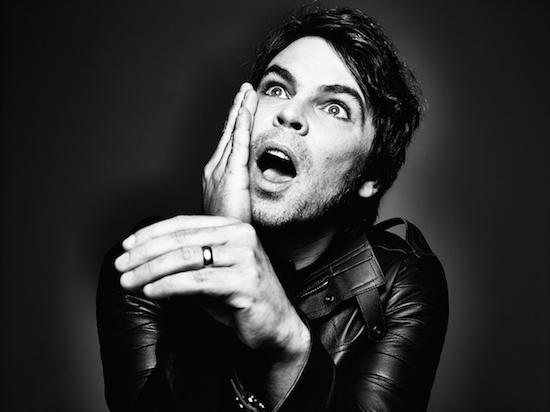
Gaz Coombes on Grizzly Bear’s Shields in his Baker’s Dozen: "This was definitely an inspiring album for me. I guess, if I’m being really honest, it made me think that I wanted to write a record like that. It’s not screaming out hit singles all over it and I’m sure this wasn’t an easy album for their record label to present to radio stations, but I really like that. When you’ve been in a band for 20 years [and] with each album, you get this extremely intense pressure to provide a three-minute pop single and I just wanted out. But writing those pop singles did come naturally and I don’t think we’d have done as well as we’d done if I hadn’t and I think I still do. Even on Matador I still can’t help containing things in three or three-and-a-half minutes. It’s like what Supergrass did on ‘Strange Ones’ or even ‘Caught By The Fuzz’. There’s a lot of information on those songs and it flies by. I guess that’s just the natural way that I write. But then again, having listened to a lot of music on soundtracks over the years, the music on this album made me realise that I don’t have to contain it all. It’s like ‘Detroit’ on Matador; I really like the groove on that, so I just kept it going. It satisfies my curiosity like Neu!’s ‘Hallogallo’ does. I’m happy to sit there for that ten minutes. I think Supergrass came from quite a psychedelic background and that’s stayed with me and what I’m into. This is where bands like Grizzly Bear come in, and I think that psychedelic thread runs through a lot of these records."
Click here to read the piece in full
Hookworms – Sunday, June 7

MJ on the evolution of Hookworms’ sound: "This band came together from three of us being in a hardcore band, playing very 80s revivalist stuff. So, I was coming at Hookworms’ music from a hardcore point of view and from a more confrontational standpoint than many people who play psych stuff. So, when we started it was very loud, but then we began to write quieter songs for the album. Everything we were coming up with was super-depressing.” And MB on debut LP, Pearl Mystic: “all I had been listening to was soul and really bummed-out stuff like Lee Hazlewood. I also think we knew that we couldn’t do an album that was just loud noise. A record needs to ebb and flow. People may have being expecting an hour of space rock, so it might surprise them that there is quiet stuff on there… It will get rid of anyone who wanted to only listen to really, really loud Hawkwind. We keep getting these fucking Hawkwind comparisons." John Freeman
Click here to read the piece in full
Jane Weaver – Sunday, June 7
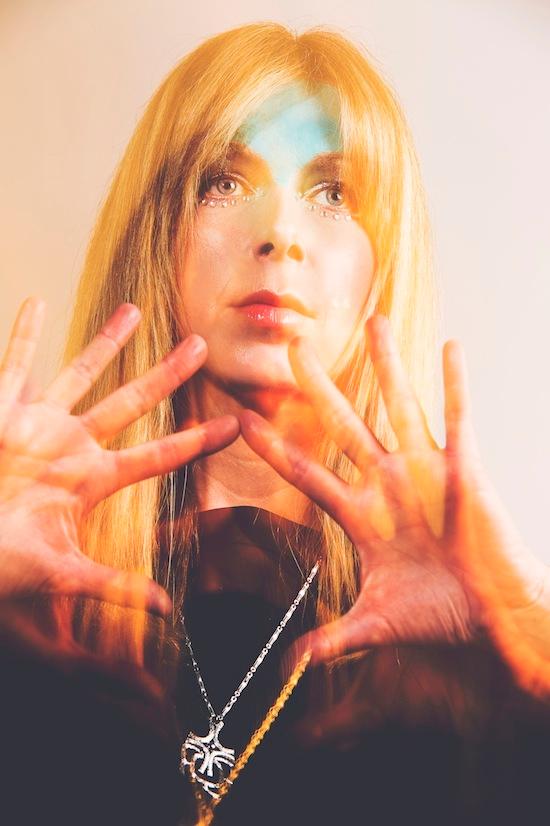
Jane Weaver on the cinematic inspiration behind her sixth solo album: "I don’t know at what point I saw the film, On The Silver Globe, but I felt an immediate connection with it. On The Silver Globe is about a bunch of astronauts that go to another planet and start a new civilisation and it all got me thinking about a revolution and a post-apocalyptic theme. I was frustrated with what I was doing at the time and I was struggling. I felt I hated the music industry and the way it works. When I first started making music there was a certain process that was followed in general, but now there is this big free-for-all thing, which is amazing and I am not down on it at all, but it made me think about where everything will end up and questioning why I was making music as an artist. It was a ‘What is the point?’ moment: ‘Why am I spending all my money on this art project when I shouldn’t really be as I have a family?’" John Freeman
Click here to read the piece in full
Marcel Dettmann – Saturday, June 6
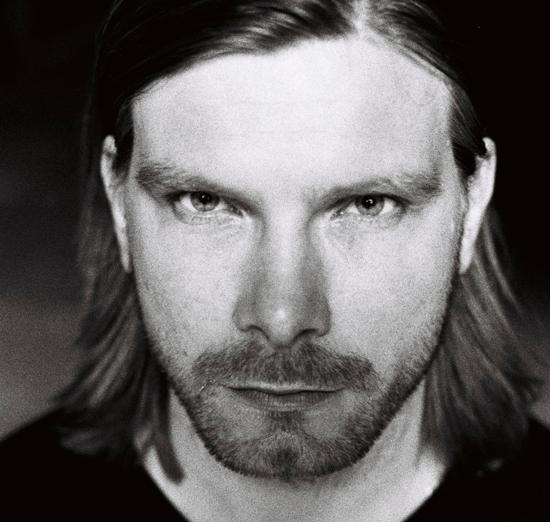
"Marcel Dettmann’s press kit begins with the words "Ruff, rugged, raw." This narrative is invaluable to the industry that has grown around the Berghain resident and techno artist over the last 15 years. It’s worth mentioning, if only to emphasise how little attention Dettmann pays to it himself. When talking about music he carries himself less like an ‘uber mensch’ techno hardman and more like an excitable teenager always on the verge of some new discovery." Sanjay Fernandes
Click here to read the piece in full
Matthew E. White – Sunday, June 7

"A big risk to be sure, but White’s first album, 2012’s Big Inner, was showered with the kind of hosannas usually reserved for The Next Big Thing. Its high production values, including horn and string sections and a choir, were matched by White’s elegant and sympathetic skills as a songwriter. With a lush and rich sound that’s recognisably rooted in America’s long heritage of homegrown music, Big Inner harked back to a different age yet its concerns were very much rooted in the here and now whilst simultaneously achieving a timeless quality. Propelled into the wider world, White spent the next 18 months on the road, bringing his debut to Glastonbury, the Hollywood Bowl and the Sydney Opera House among others." Julian Marszalek
Click here to read the piece in full
Mumdance – Saturday, June 6

"Marshalling a refreshingly global musical attitude alongside seriously weighty production chops, Jack Adams, aka Mumdance, has had quite the run this year. The pared-down kinetic energy of the Take Time EP for Rinse combined warped eski rhythms and a skewed percussive palette to create some of the most electrifying grime around, alongside a brilliantly on-point vocal turn from Novelist. Adams’ brute technological bangers made in collaboration with Logos and Pinch, meanwhile, have solidified a clammy darkside aesthetic that evokes nightmares in the furthest corners of Bagley’s, Stratford Rex or Milton Keynes Sanctuary." Harry Sword
Click here to read the piece in full
Owen Pallett – Saturday, June 6

Owen Pallett on Dean Blunt: "Shortly after I moved to Montreal, this girl Sarah Krug, who I met by virtue of her being my next door neighbour, at the time was dating d’Eon, the harpsichord player who did that split with Grimes. At the time I was hanging out with the two of them and she at one point was like "you have to listen to this record" and gave me a copy of The Redeemer and it completely destroyed me. It was making me relax about things, not be so fussy. I hope I took that to the new record, though It’s hard to make me completely unfussy – I’m always going to be fussy, but hopefully in the future I’ll lose all of my exoskeleton and completely relax." Luke Turner
Click here to read the piece in full
Ride – Sunday, June 7

"There have been many dissenting voices bemoaning the recent spate of band reunions, but you wouldn’t have found any of them crammed into the upstairs of Oxford’s O2 Academy (formerly The Zodiac) on Easter Sunday, as local heroes Ride – Andy Bell, Mark Gardener, Steve Queralt and Loz Colbert – prepared to perform together live for the first time in 20 years. Like their fellow (also recently reformed) shoegaze pioneers Slowdive, Ride feel like a band with unfinished business. Their first life ended in acrimony and exhaustion in 1996, with close friendships in tatters. With Ride, the hatchet was buried fairly swiftly and the band have been on good terms for years (even performing together in 2001 for a Channel 4 documentary about Sonic Youth), but getting back together now is far more than an exercise in nostalgia. Their legacy is strong – like Slowdive they have become more influential in their absence then they ever were when they were a going concern when, after a meteoric rise, they found themselves vilified in the press for various reasons – mostly spurious, some justified." Joe Clay
Click here to read the piece in full
Spector – Saturday, June 6

Fred Macpherson: "Good is the aim. And good plus context equals classic. We can’t control the context. We can only do our best and maybe at some point the path of culture will cross with ours and we’ll be a bit more relevant than just four English guys."
Click here to read the piece in full
Stealing Sheep – Saturday, June 6

Becky Hawley: "If we are doing analogies, yeah, it is like training yourself to know which is the best cheese and which is the best toast. The first album was more of a stream of consciousness; it was just us playing and not even thinking whether it was good or bad, and then recording it and releasing it and not having any expectation of what it would be to anyone. Now, it is a different situation altogether, as we are thinking about how to challenge ourselves and make the best record we can make together. That is a very different dynamic from last time."
Click here to read the piece in full
Toumani & Sidiki Diabaté – Saturday, June 6

Toumani Diabaté: "You have to be born griot, you cannot become a griot. And to be born a griot in the griot family is like a school. And in this school there are not any papers, not any pens to write it down. You have to open your mind to learn to play how the music, to learn how to keep the histories in your mind, to learn how to get archive, to learn how to be in the society. Because you are the ambassadors, like a journalist, but more than that. Because being in a wedding, the griot makes the connection between the families, to organise a wedding, to organise birth ceremonies, the griot is everywhere. Even the presidents of Mali, Guinnea Conakry they still have their own griot. Because the griot knows the histories of the family. Each family has its own griot who knows the history of these families."
Click here to read the piece in full
Viet Cong – Sunday, June 7
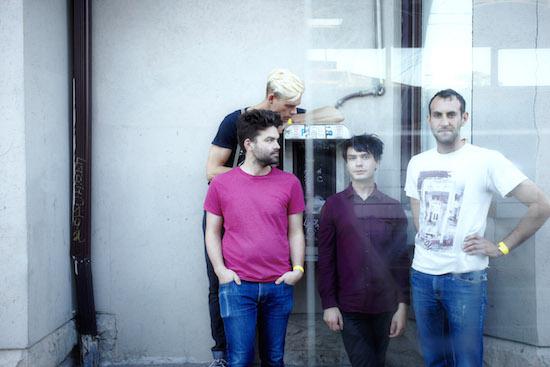
"It’s Flegel’s aching, Bowie-esque vocals and near-abstract, symbolist lyrics that particularly put me in mind of Foxx, but Viet Cong’s music too shares the same blend of cold, mechanically synthesised sound sculptures and twisting, hypnotically psychedelic melodies that Foxx often flirts with. It’s no surprise then that the singer admits to a love of Syd Barrett ("If I could ever write a melody that was half as good as his were I’d be happy. He’s definitely a big influence") alongside Sonic Youth, New Order and Echo & The Bunnymen. In truth though Viet Cong’s music – as heard on their recent, self-titled LP – tears up the rulebook, openly colliding influences and reference points (add This Heat, Gary Numan, Throbbing Gristle, Terry Riley, Pixies and Interpol among others to those already mentioned) but never settling for the kind of homage or lazy pastiche that so many contemporary bands seem happy with." Ben Graham
Click here to read the piece in full
Yak – Sunday, June 7
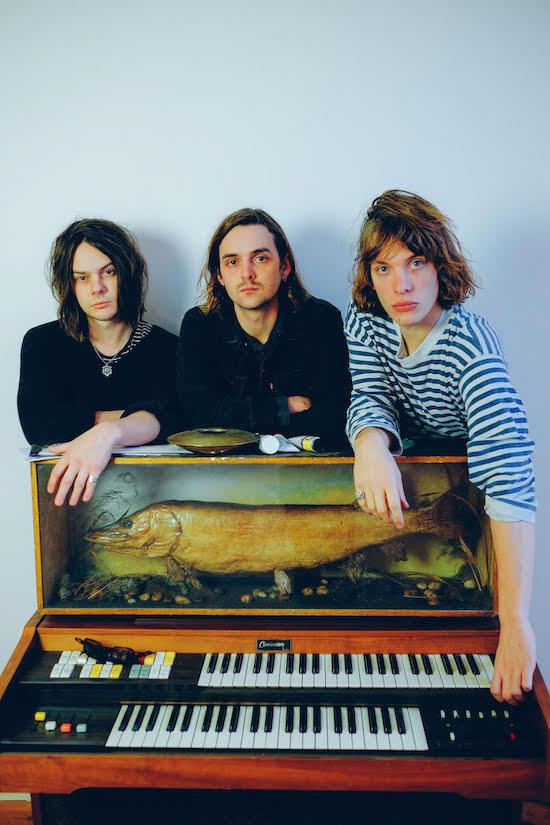
"To meet the 27-year-old Yak frontman and guitarist is to be confronted by a genuine force of nature. Fuelled by an almost nervous energy, Burslem is continually sweeping away his long hair from his eyes and his smile is a permanent fixture on a face that suggests he could be the long-lost lovechild of Mick Jagger… Alongside Burslem in the band is bassist Andy Jones, his childhood friend from Wolverhampton and the singer’s first port of call after he decided to swap running a stall in Spitalfields market for rock & roll, and Elliot Rawson, enlisted, says Burslem, "fresh off the boat from New Zealand". "He goes, ‘Do you need a drummer?’ and me and Andy said, ‘No, not unless you’re any good’ and he goes, ‘Well, I am good. What sort of style are you into?’ so I just said, ‘Really tasteless cock rock and the rehearsal’s on Tuesday’ so he came along and that was it," explains Burslem." Julian Marszalek
Click here to read the piece in full
Zun Zun Egui – Sunday, June 7

Kushal Gaya on the trip to Mauritius that inspired Shackles’ Gift: "While I was there I hooked up with this old fisherman who had been involved in music out there for a very long time and he was telling us stories about his forefathers. The folk music they listened to was a very strong component of the culture. He told me that the music came from people working in sugar cane fields and from them hearing the sugar cane mill – they used that noise and that rhythm to create this folk music. To me this was an incredible story because I was always loved harsh industrial music like Whitehouse and Throbbing Gristle, and I thought that the Mauritian folk music he was telling me about was even more brutal in a way. It was like an even earlier form of industrial music but it wasn’t conceptually driven – it came directly from the actual real-life situation of workers composing music next to heavy machinery, and it was born of servitude. It was an early form of industrial music and in that sense it was very forward-looking. It was futurist art." John Doran

